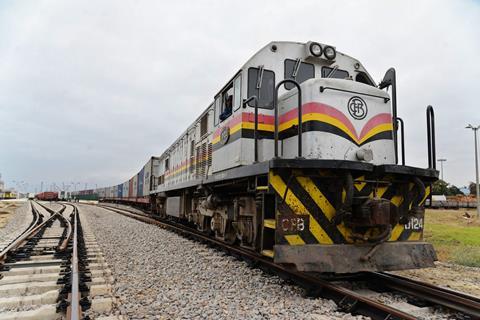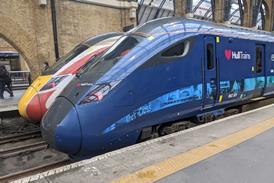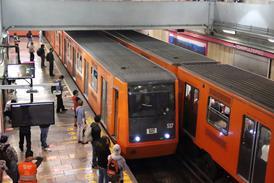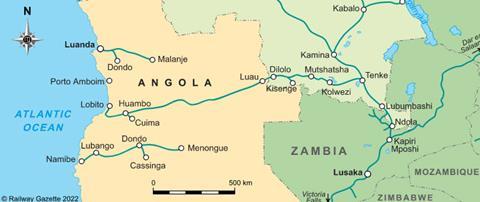
ANGOLA: On November 4 the Ministry of Transport signed a concession agreement in Luanda with a consortium of Trafigura Group, Belgian rail operator Vecturis, and Mota-Engil Engenharia e Construção África to operate and maintain the Lobito Corridor for freight transport for 30 years.
Worth around US$100m, the concession covers the 1 067 mm gauge Benguela Railway stretching for 1 344 km between Lobito and the border with the Democratic Republic of Congo near Luau in eastern Angola. The agreement includes an option for a 20-year extension on condition that the concessionaire builds a branch off the Benguela Railway from Luacano in Moxico province to Jimbe on the Zambian border.
Under the agreement the consortium will pay the Angolan government rental fees of US$319∙4m in the first 10 years, US$787∙4m in the second 10-year period and US$919∙0m in the final decade. It has also committed to invest US$256m in infrastructure and US$73∙4m in rolling stock and other equipment, plus US$4∙3m in other activities.
Traffic forecasts for the corridor suggest that the concessionaire will handle 1∙67 million tonnes a year by the fifth year, rising to 2∙98 million tonnes after 10 years and 4∙79 million after 20 years, with the same volume expected in the final year.
Minister of Transport Ricardo Viegas D’Abreu said that signature of the contract represented ‘a relevant milestone in the development and optimisation of the transport sector in Angola and, at the same time, a driving spring of the national economy and its diversification, both in terms of creating new businesses and creating new jobs’.
The corridor would allow rail transport ‘to bring positive financial benefits and contribute to local and regional development around the railway line’, he continued. ‘It may represent a contribution to gross domestic product estimated at US$1∙6bn to US$3∙4bn’, while the concession would help to ‘guarantee the repositioning of the Lobito Corrido as vital infrastructure for facilitating the economy as well as for facilitation of the economies of our neighbouring countries and the SADC region’.
The minister also pointed out that the project integrated the minerals terminal at Lobito port with the infrastructure and transport of cargo on the Benguela Railway and noted that there was ‘a lot of technical work to be done between the teams on both sides’.
The contract is expected to benefit Angolan agriculture and the mining industry, with more jobs created and the emergence of opportunities for developing small businesses along the corridor. Shipment rates are expected to be competitive with road transport, potentially contributing to lower costs.
Local and long-distance passenger services along the Lobito Corridor will continue to be run by Caminho de Ferro de Benguela. In late October CFB Board President Antonio Cabral told a conference in South Africa that 900 000 passengers a month were predicted to travel over the 30 km between Lobito and Benguela where CFB is running diesel multiple-unit services.


















